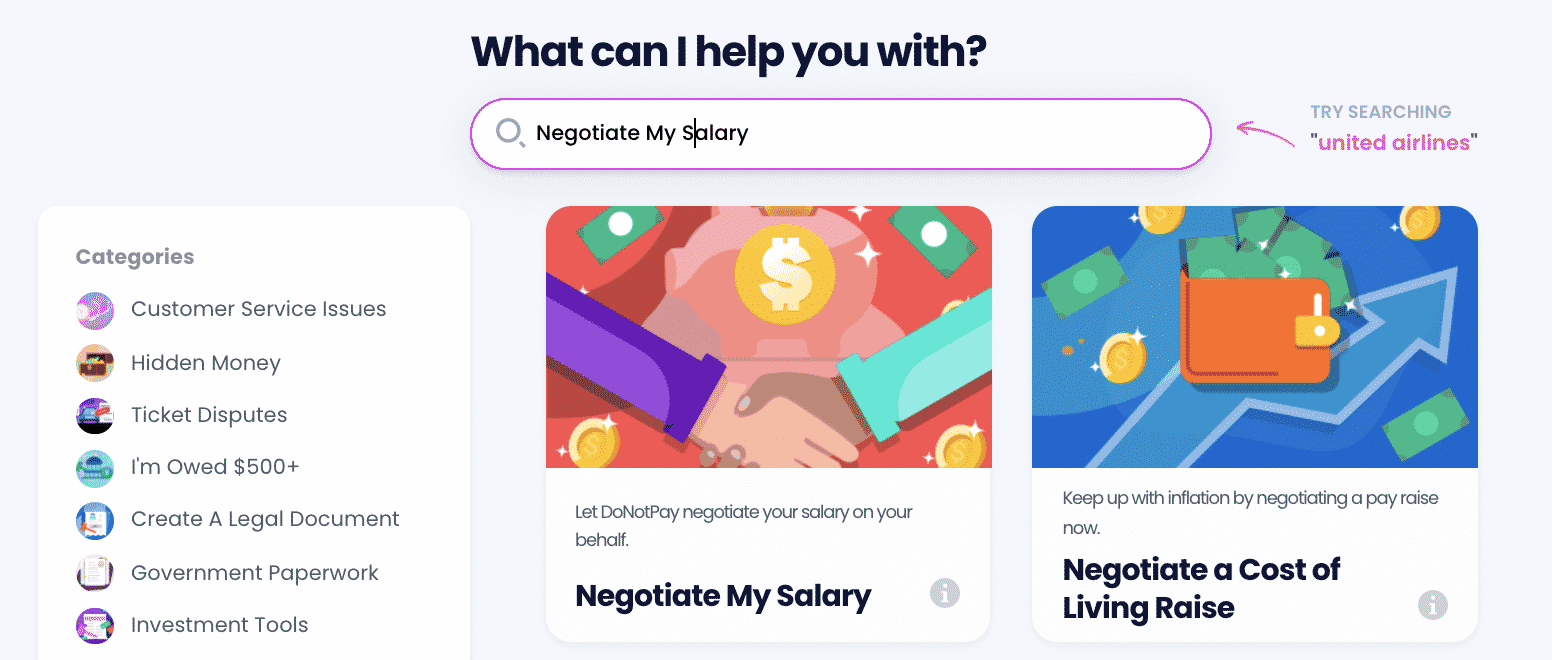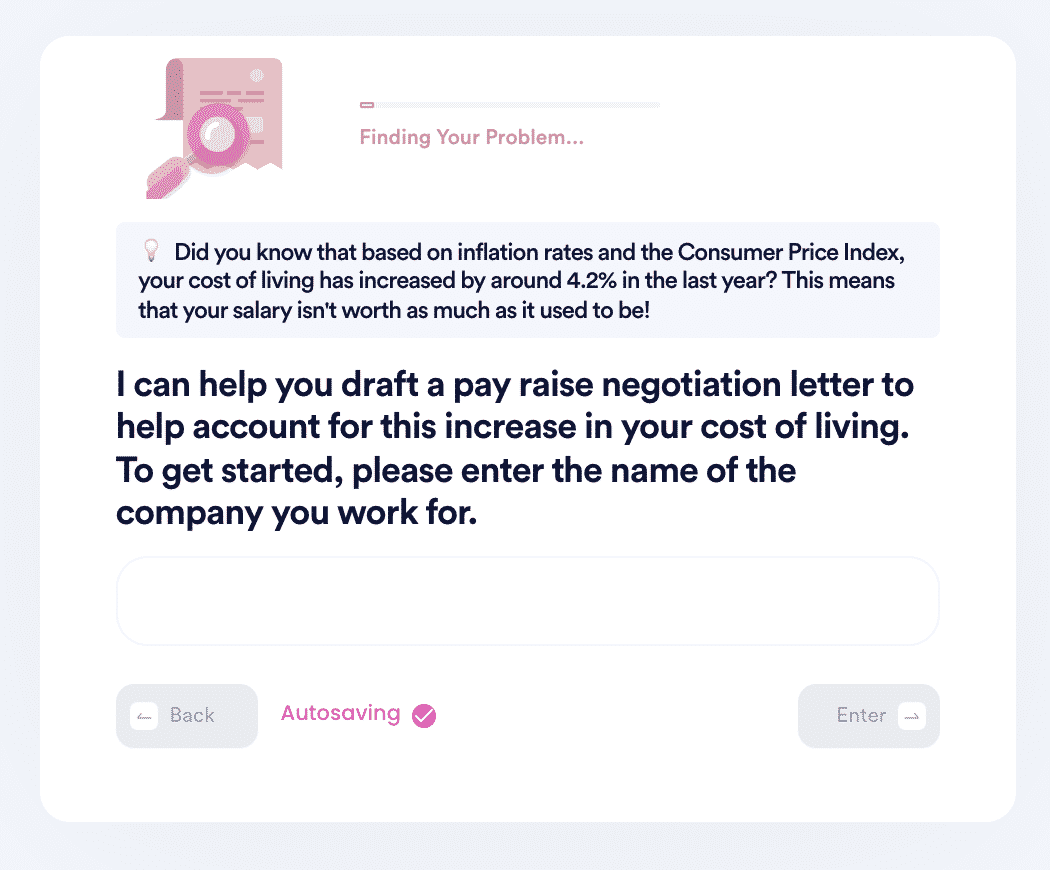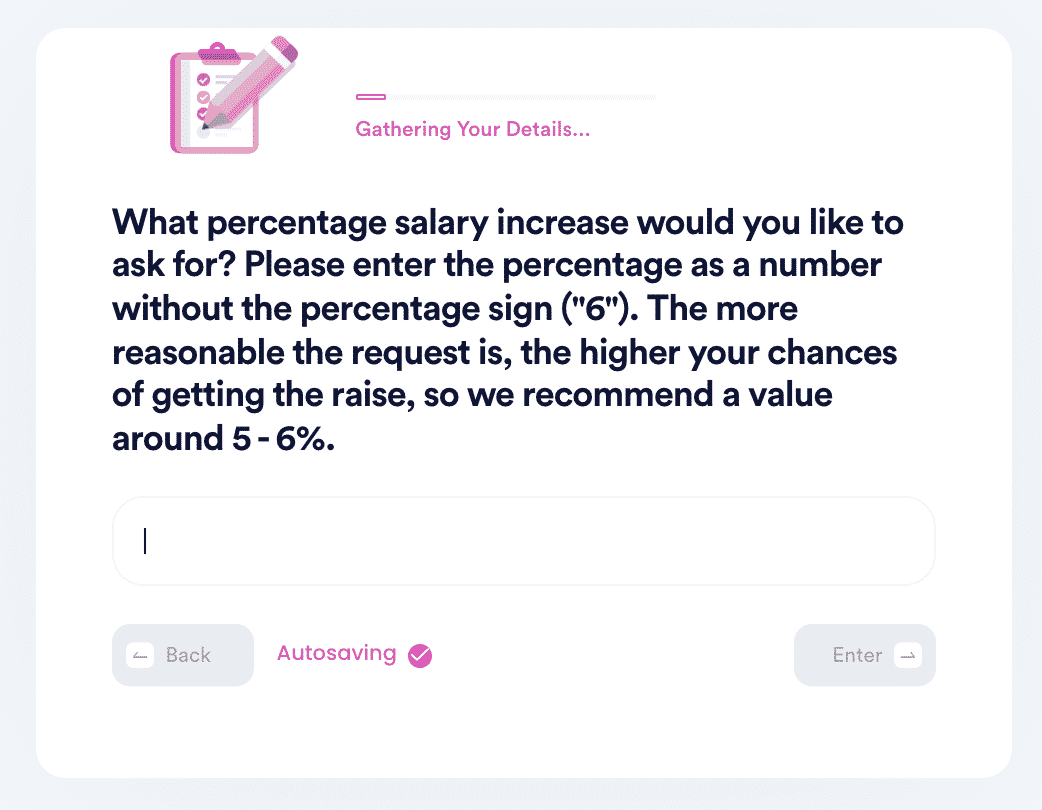Does Certification Increase Salary?
If you work in a competitive field, one way to set yourself apart is through certification and additional training. However, you may be wondering if there are additional benefits to receiving any specialized certifications. or expand professional outlook? The short answer is, yes, specific certifications can have many long-term benefits, but it is important to know that you will have to put in some work when determining if you should negotiate your salary. Fortunately, DoNotPay can help you navigate that process and make an excellent case to your employer or potential employer for the salary you deserve.
Tips to Negotiate Your Salary
If you want to ask for a raise, or you are preparing to negotiate your salary with a potential employer, you may be wondering what the best tips and tricks are for success. There are several things you can do to increase your chances of a successful negotiation.
1. Research
When it comes time to negotiate your salary, you should have facts and statistics to back up your claims and requests.
| Know the qualifications | Research the average salary for your position, experience, and education/certification level. The amount of raise you ask for should be commensurate with your experience and abilities. |
| Consider your location | Research the average salary for your position based on your location. Many employers will do a market analysis, and they'll know what you are worth, but that doesn't mean they will offer you that much, so it's important to ask for a reasonable raise. |
| Ask for the raise on time | Paying attention to the consumer price index and inflation.
Knowing when to ask for a raise, particularly if you haven't had a raise in a long time but have been with the company for a while, is important. |
2. Know Your Worth
Now is not the time to downplay your major projects, accomplishments, and career achievements. This is where your education, training, and certifications come into play. When you have that are unique, highly regarded within your industry, or that make you more knowledgeable about other areas outside of your specific role, this can be very valuable to companies. If you have other job offers, especially with the company's primary competitors, you may decide to reference this at the right time. Smart managers want to keep the talent within their own company and will do what it takes to keep them out of the competition's reach. It's often more valuable for them to give a raise than to let good workers go and have to retrain new employees, and this can be used to your advantage.
3. Don't Forget About Benefits
Does the company offer a benefits package? If they do not have wiggle room with salary, they may still be able to offer you other perks, such as additional paid time off, travel reimbursement, or bonuses. Benefits are an extension of your salary and should be considered during negotiations.
How to Negotiate Your Salary on Your Own After Earning Certifications
Although it can be intimidating, requesting a raise or an increase in salary after obtaining new certifications is certainly within your rights and should be done with confidence.
- Schedule an appointment with your human resources director, or whoever handles salary negotiations. You can do this by phone or email, but try to schedule your appointment for an in-person meeting when possible.
- Do your research as stated above? This can be a little tedious and time-consuming, but it is important and should not be overlooked.
- Prepare your talking points. You may want to draft a speech so you can practice. You don't want to sound rehearsed and forced, but you do want to be confident in your request.
- Enter your meeting with confidence and begin negotiations!
Handle Salary Negotiations the Easy Way with the Help of DoNotPay
At DoNotPay, we know you are busy and probably don't have time to do research salaries and inflation. If you are looking for a simpler way to prepare for salary negotiations, DoNotPay can help. How to negotiate your salary using DoNotPay:
- Search "negotiate my salary" on DoNotPay.

- Enter the name of your company and the industry you work in, so we can find the right wage statistics for your role.

- Answer a series of questions regarding your qualifications and achievements, relocation expenses, and other job offers if applicable.

- Enter the new base salary you would like to request.

And that's it! Once the information is finalized, DoNotPay will generate an official salary negotiation letter that you can then email or present to your employer!
What Else Can DoNotPay Do for you?
Helping you with salary negotiations is just one of the ways that DoNotPay can help. We are also here to assist you with:
- Fighting Workplace Discrimination
- 83(b) Election
- Reducing Property Taxes
- Canceling Services and Subscriptions
- Car Registration Renewal
- Filing Police Reports
- Breach of Contract
If you are looking to save time, money, and stress while solving problems, DoNotPay is here for you!
 By
By